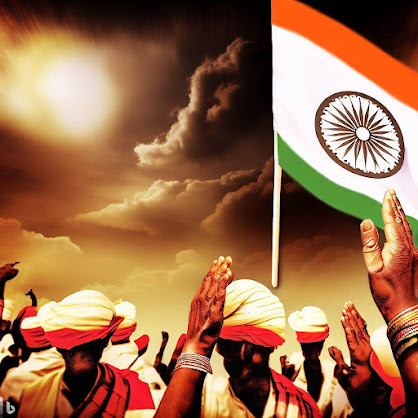Introduction
In the intricate and diversified political landscape of India, the Bhartiya Janta Party (BJP) has grown to become a powerful political force. The party, which was founded in 1980, has made a remarkable journey from being a very minor role to holding the national government in its hands.
Foundation and Early years
The Bharatiya Jana Sangh (BJS), a political party established in 1951 by Syama Prasad Mukherjee, is where the BJP's origins may be located. The BJS, a right-wing nationalist organization at first, sought to advance Hindu nationalism and cultural identity. But it struggled to garner general acceptance and failed to leave a lasting impression on the national scene.
Transformation and Rise to Power
The 1980s saw the BJS adopt a more open-minded stance and expand its support outside its core constituency, which marked the beginning of the party's metamorphosis into the BJP. Leaders like Atal Bihari Vajpayee and L.K.Advani, who attempted to forge a wider coalition by focusing on economic growth, good governance, and national security, were primarily responsible for this move.
For the BJP, the early 1990s proved to be a turning point. The party was a key player in the Ram Janmabhoomi campaign, pushing for the building of a temple at the contentious Ayodhya location. The BJP gained major political ground as a result of this movement, which energized Hindu feeling and catapulted it into the national arena.
Atal Bihari Vajpayee served as the Prime Minister of the BJP's first-ever national coalition government, which was created in 1998. This represented a historic turning point for the party and cemented its status as a significant political force in India. The BJP's following electoral victories and efforts to form coalitions increased the power of its influence in Indian politics.
Ideology and Political Agenda
The Hindutva movement, which promotes the preservation and advancement of Hindu culture, heritage, and value, is the foundation of the BJP. However, the party also supports a more comprehensive platform that covers improvements to government, national security, and the economy. Under the guise of "Integral Humanism," the BJP aims to fuse timeless principles with cutting-edge development techniques.
The party has prioritized supporting social welfare programmes, infrastructural development, economic growth, and job creation in its policy objectives. The BJP-led governments have made initiatives like "Make in India," "Digital India," and "Swachh Bharat Abhiyan" (Clean India Mission) into its centerpiece initiatives.
Impact and Challenge
The BJP's ascent has significantly altered Indian politics. The party has changed the political scene via its capacity to forge broad-based alliances, mobilize grassroots support, and take use of technology innovations. The BJP has been able to implement it policy agenda and influence public disclosure because to its election successes at the state and federal levels
The BJP has still encountered difficulties and opposition. The party's emphasis on Hindu nationalism and majoritarian politics, according to critics, has caused problems with religious and social peace. The BJP has also been under fire for how it has handled a number of sociopolitical problems, such as religious conflicts, freedom of speech, and minority rights.
Conclusion
The BJP's political career in India has been an interesting one, characterized by change, electoral wins, and policy efforts. The BJP rose to popularity by fusing a nationalist philosophy with a more expansive development goal from its modest origins as the Bharatiya Jana Sangh to its metamorphosis into the Bhartiya Janta Party.
The BJP has had a significant political effort on India. Because of its election successes, the party has moved into the forefront of administration and brought about important policy reforms. The party's focus on infrastructure improvement and economic reforms has helped India's growth narrative by luring both local and foreign investment. Furthermore, the BJP has changed India's posture on the world arena by emphasizing national security and a strong foreign policy.
The BJP, though, continues to encounter difficulties. It has come under fire as a party affiliated with Hindu nationalism for allegedly marginalizing religious and racial minorities. Concerns have been expressed over the party's dedication to secularism and its capacity to uphold social peace in a multicultural country like India. Additionally, the BJP's policy choices have run into criticism from a variety of social groups, underscoring the intricate and fluid character of Indian politics.
Looking ahead, the BJP's capacity to adjust to shifting political circumstances, addresses social issues, and strike a balance between nationalism and inclusion will have an impact on the party's future. The BJP will continue to play a crucial role in determining the course of India's development.
Finally, the growth of the Bharatiya Janta Party in Indian politics marks a pivotal period in the history of the country. From its modest origins, the party has grown into a powerful force that has shaped policy, won elections, and permanently altered the political landscape of the nation. The intricacies of Indian culture, the ambitions of its citizens, and the difficulties of governing in a pluralistic democracy are all reflected in the BJP's path. The BJP will continue to play a significant role in moulding India's future and participating in the continuing discussion about democratic governance.










No comments:
Post a Comment